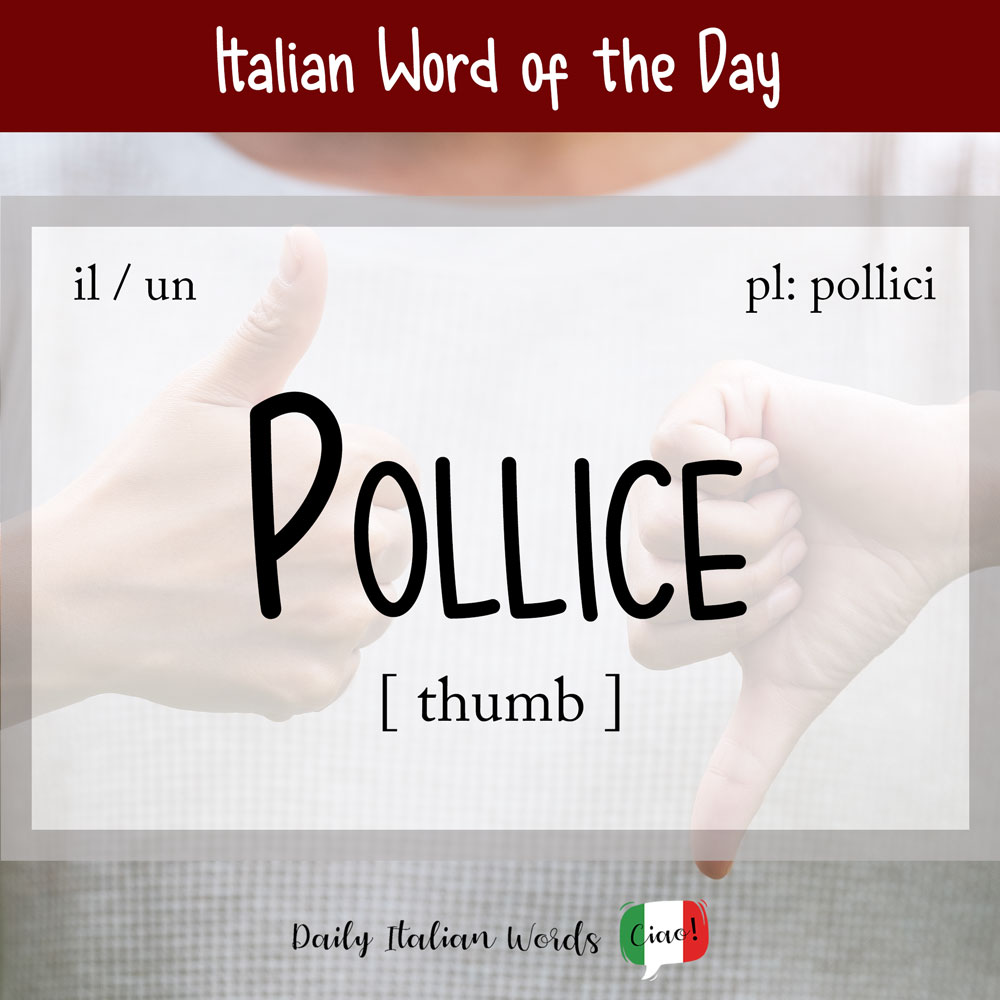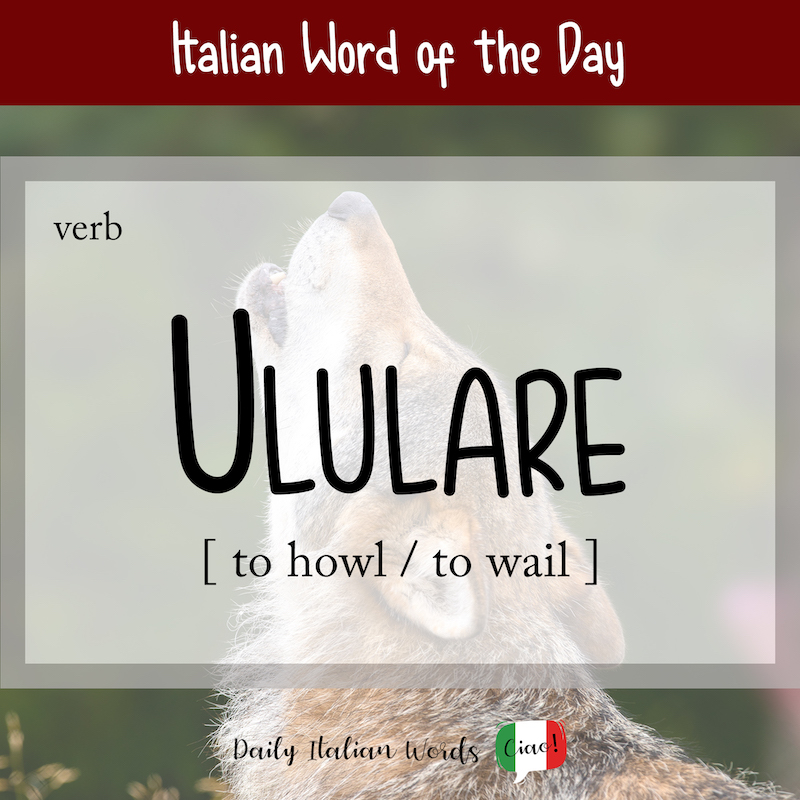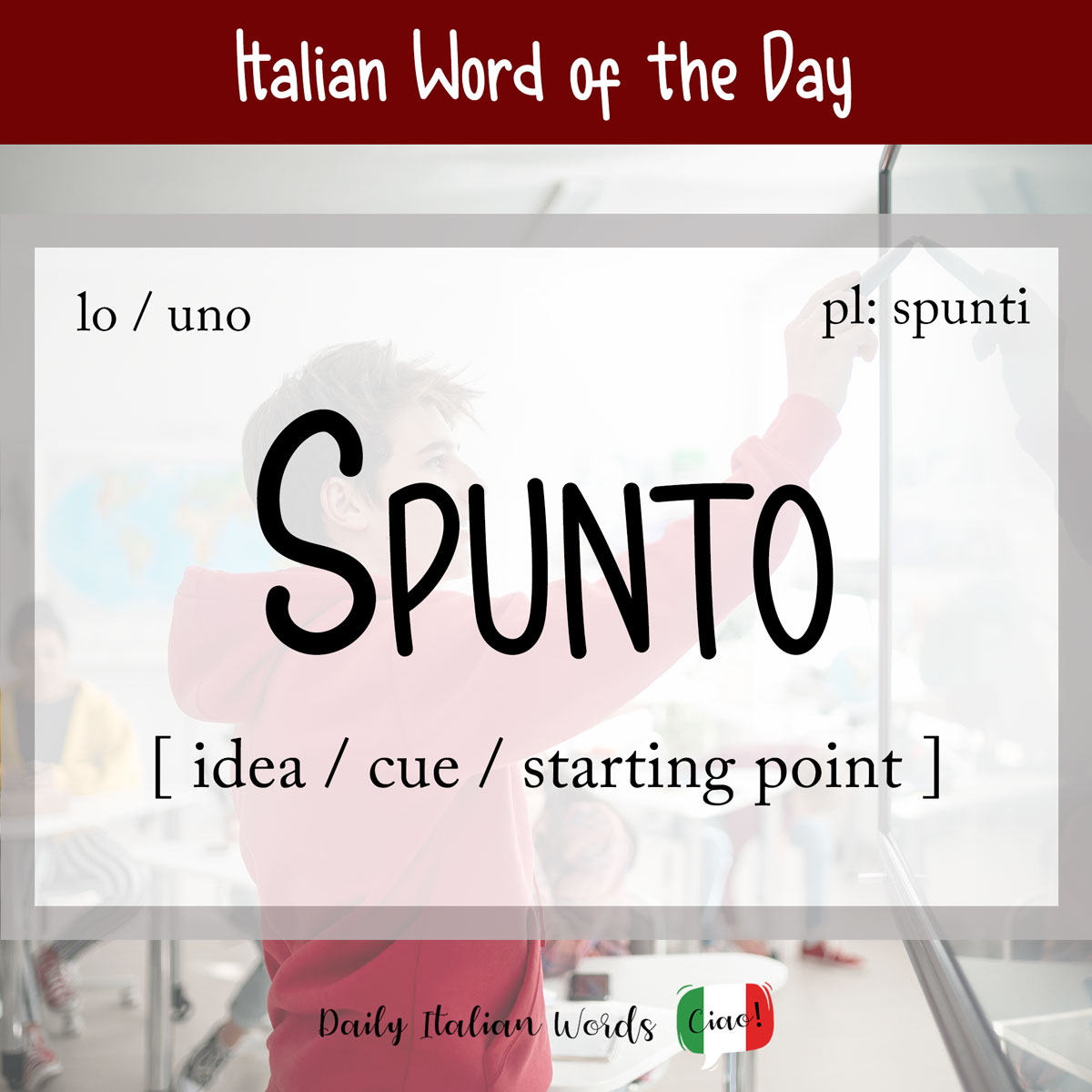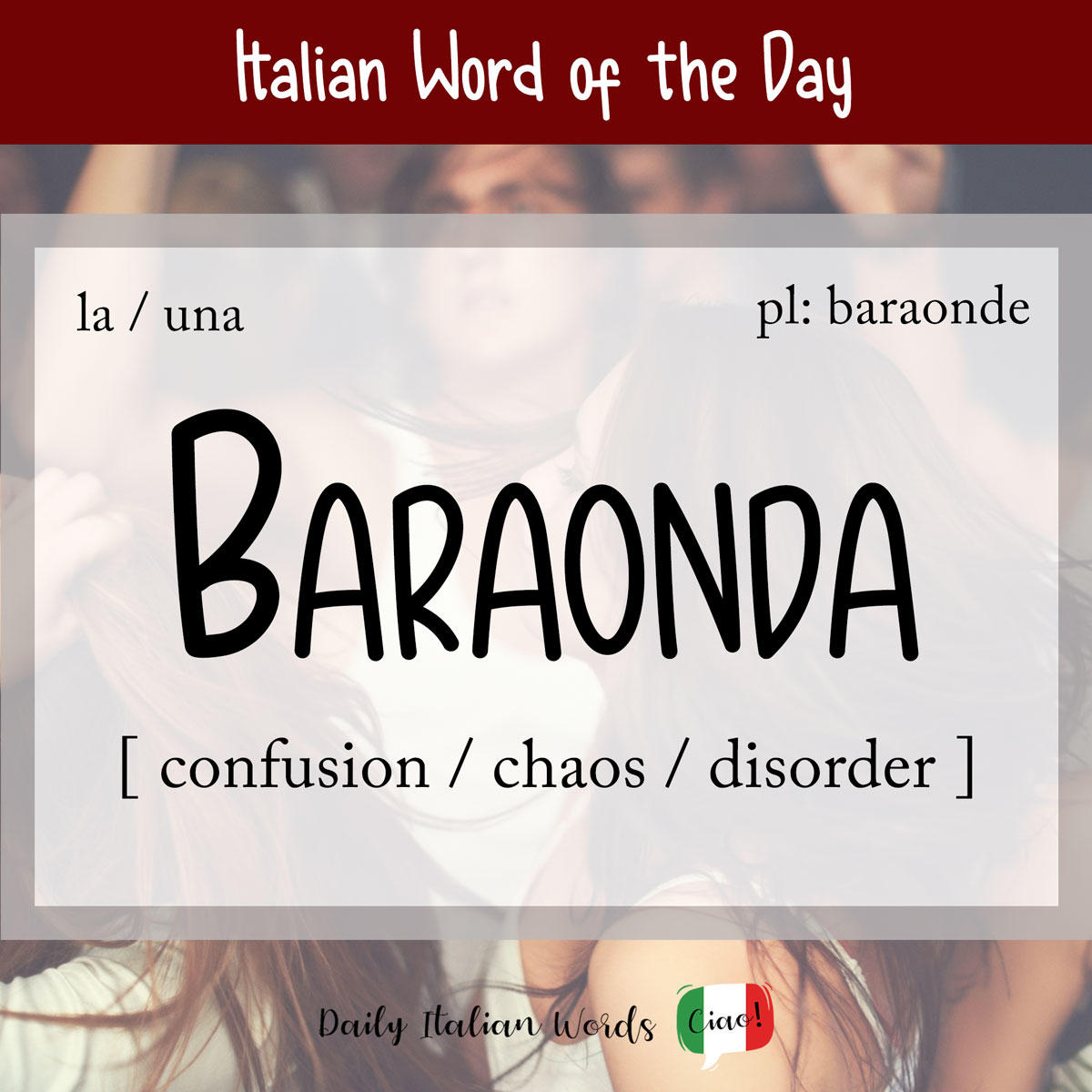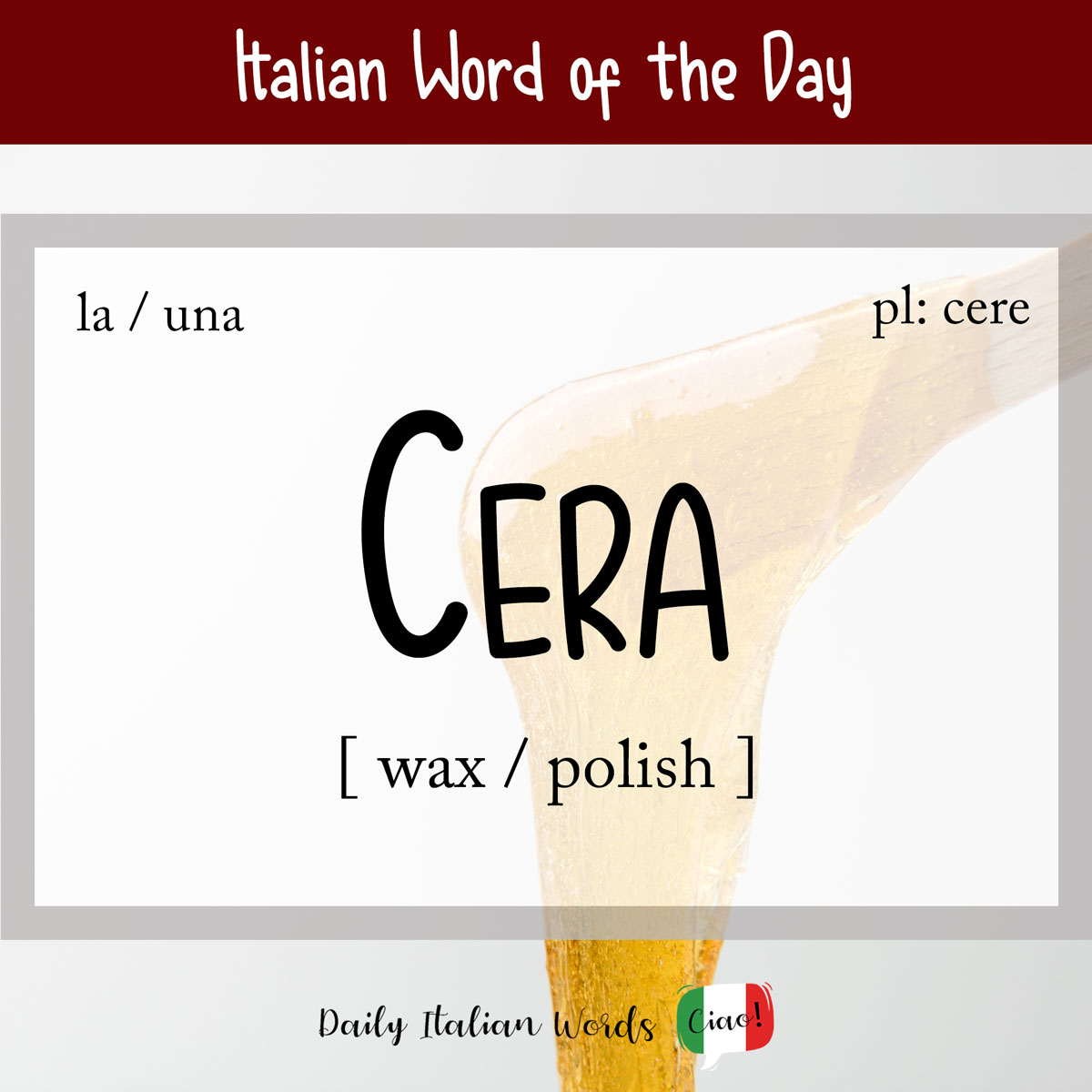Italian Word of the Day: Pollice (thumb / inch)
Pollice, whose origin can be traced back to the Latin pollex -lĭcis, is the word for thumb in Italian. Because pollice is a masculine noun, it takes the following definite and indefinite articles: il pollicethe thumb un pollicea thumb i pollicithe thumbs dei pollici(some) thumbs The thumb is the outermost digit, accompanied by l’indice (index …

